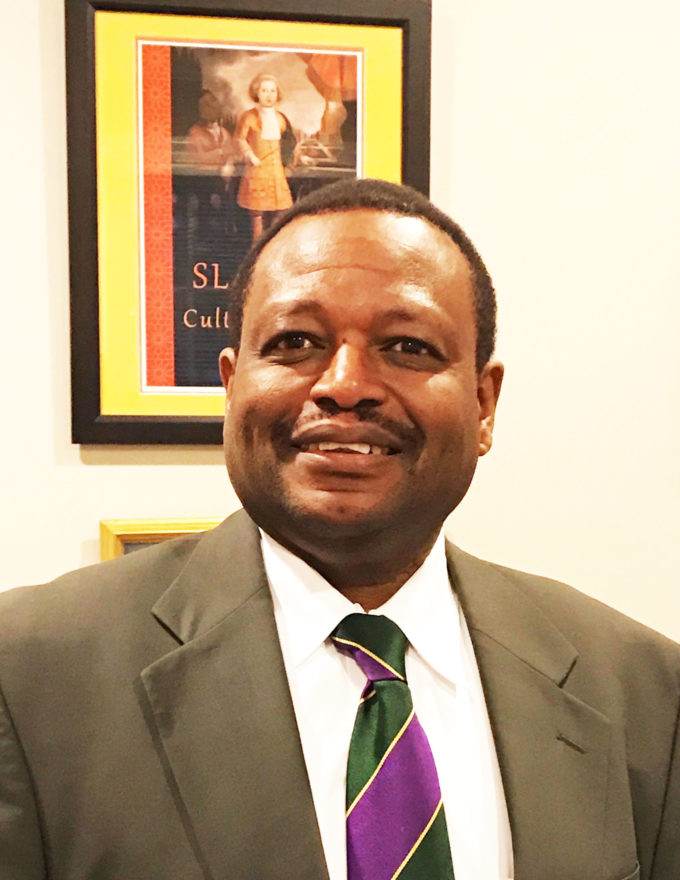
Our conversation happens on Zoom after weeks of negotiating through time zones and continents as scheduling has become an improvisational art. We speak between Princeton and Johannesburg. In spite of living at a busy and noisy intersection—my background is loud, kids screaming their freedom after months of confinement, taxi hooters in Yeoville’s busy thoroughfare add to the cackle of unstable internet which makes it difficult for me to hear, or we freeze in frame awkwardly—we endure and still manage to have an expansive conversation on the genealogies of African Literature.
We begin with speculating the future even though the pandemic has disrupted our notions of time. We speak, not as teacher and student, or mentor and mentee, but as colleagues and as readers who share mutual interests. My early encounters with Professor Simon Gikandi, currently Robert Schirmer Professor and Chair of English at Princeton University, is primarily in the archives, especially the Heinemann papers and the Dambudzo Marechera records. Then later, his books.
In order to understand the state of African literature today, we took many detours to arrive at this moment. In this conversation we navigate multiple and transatlantic subjectivities, move across borders and temporalities. In the process, we produce a feast of ideas, resistance, and tenderness.
[The interview was edited for length and clarity.]
Tinashe Mushakavanhu
Perhaps let’s start with speculations and go backwards—that is, thinking about where African literature is going, or coming from. Can we speculate about the futures of African literature?
Simon Gikandi
The one thing I have discovered in my research in the last few years is that the great moments of African literature have been associated with a certain kind of crisis, not necessarily a political or economic crisis, but a phenomenological crisis — African subjects asking themselves what it means to be African, at a particular moment, at a particular time, so if you ask me to speculate about the literature of the future, I would say it’s going to be driven by the very dynamic and continuous changes that are taking place in terms of what it means to be African in the world. Because if you ask that question, which Chinua Achebe asked many years ago, when you see a black person, what do you think about? One could say that when you talk about an African, what are you talking about? Every day I am encountering all sorts of Africans in all sorts of places. Africans are no longer confined to specific localities, Africans live across the world, so in that sense, the literature of the future is going to be an attempt to respond to what that future is going to be. We are going through a very interesting moment when we can’t be certain about anything. I can imagine a literature that is actually going to be futuristic, not necessarily in terms of science fiction futurity, but futuristic in the sense that it is no longer concerned with the present or the past but starting to imagine a space in the future.
Tinashe Mushakavanhu
Thank you for opening the conversation in this way because in order to reflect on these ideas of being African, or Africanness, I want us to use Binyavanga Wainaina’s essay, ‘How to write about Africa,’ as a prompt in two ways: how is the new generation of African writers imagining Africa? But I am also curious about how the older generation is imagining Africa today considering all they have gone through, all the changes they have witnessed?
Simon Gikandi
I think it’s very important that we are talking about generations. When people think about generations they think about generations in a kind of pejorative way as if generations are always in conflict. But I am convinced that generations are marks of transformation and of change. There are things which appeared to be new, which are no longer new. I was one of the first readers of Dambudzo Marechera’s work, and he was new. At that time in fact the reason why they were sending manuscripts of Marechera to me at Heinemann’s was because they couldn’t make sense of it. It was not what they had come to imagine as African writing. So, now of course, Marechera is not new. When young writers write they position themselves in relation to Marechera or against Marechera, but Marechera is not new or contemporary anymore. So in that sense my argument is that each generation has to imagine its own Africa, its own notion of Africa, and its own experiences of Africa. One way of thinking about it is to think about Africa as a floating signifier that means different things to different people at different times and in different places. When we talk about generations we are not just talking about time, but also place. When I talk to Africans in London their imagination of Africa is going to be different from those of Africans in Alaska. Each generation has to bring to its own perspective of the Africa they are living and experiencing.
Talking about older generations, it was my good fortune when I was a young student to have spent a lot of time with the first generation of African writers like Chinua Achebe, Ngũgĩ wa Thiong’o, Wole Soyinka. I came to know them well, but I was a generation behind them. So I was this kid observing the elders at work; but what I noticed is that when we talked, their perspectives about literature or perspectives of language and their perspectives about life in general were shaped by their own experiences. The most important institution for them was the colonial school and the university. I used to be bemused by their recollection of the public schools they went to, the grammar schools they went to and how they discovered writing from, and mostly without exception, British teachers. But my experience was different as I was growing up in a postcolonial situation and that old relationship to Britain had changed and was part of my memory but not my experience. Each generation has to figure out its own relationship with its past, and generations are involved in a pedagogical project educating each other in different ways.
Tinashe Mushakavanhu
I like this idea of thinking about generations of African writers as being involved in a kind of on going pedagogical project. Is there a continuous conversation from the lessons of the past to what is happening today?
Simon Gikandi
In thinking of the emergence of African literature, I was surprised by the connections in terms of the conversations that have been conducted across generations. This connection is not always direct, but it came from several directions. Traditions of writing are connected to specific cultural moments, which change but some things remain the same. I was thinking especially of Jennifer Nansubuga Makumbi’s Kintu, which is powerful, original, avant garde if you want. But the legend of Kintu runs through the whole Baganda tradition. You can see this connection in writings of Sir Apolo Kagwa who was writing around the 1920s, especially in The Customs of the Baganda, and the History of the Baganda Kings. Of course, the legend of Kintu is at the center of Baganda identity. So when one talks of Kintu, even if they have not read Sir Apollo Kagwa, there is a connection through that tradition. I could pick up other traditions. If someone from Eastern Nigeria speaks about fishermen, they are connected not only to a tradition about fishing but also about fishing in fiction and poetry. J.P. Clarke and others, for example, use a motif of fishing and fishermen, which we see carried over into recent writing from Nigeria. If someone is talking about Zimbabwe there are certain connections if we talk about the legend of Nehanda, which becomes a connecting thread in postcolonial writing. You can see tropes which are connecting writers even when they are not reading each other.
The other thing that surprised me is the actual intertextual relationships between generations of writers. Whether we are talking about Adichie’s relationship to Achebe there is always the important fact that writers are also readers. For the newer generation of African writers who have been reading older generations of African writers they are familiar with the discourses these writers have initiated. So I am fascinated with scenes of reading in African literature. If you look at Graceland by Chris Abani, the main character (Elvis) is always reading books, and one of the books this character loves are the novels of Cyprian Ekwensi and the Onitsha Market Literature. It doesn’t surprise me then that Abani has a relationship with Ekwensi, not just cultural or regional, but also textual. More recently, in the project I am working on, I am interested in how literature creates a reading public. If you look at African newspapers you are going to see quotations from writers even by people who have not read those writers. Older generations used to quote Shakespeare even if they had not read his works. Literature creates a public and this public in turn adopts literature as one of its mechanisms of relating to life. In fact, one could say African writers are always engaged in a conversation with the books they have read at school.
Tinashe Mushakavanhu
It is important to stretch the conception of African literature beyond 1958 when Things Fall Apart was published. I am interested in the expansiveness of time in our thinking and theorizing of African literature outside Heinemann’s African Writers Series and the impact it has had on how we think or read this literature?
Simon Gikandi
Yeah, this is something that became important to me partly because of spending a lot of time in the archives. The question of course is this: where did African literature come from? How, when and why the idea of literature in the modern sense of the word emerged in Africa is one of my concerns. And literature comes from many sources. For example, in the 1880s and 1890s the idea of literature in Africa was being promoted by people who had returned from the African diaspora like Alexander Crummell who was an African American minister who became disenchanted with the United States and moved to Liberia and Edward Wilmot Blyden who was born in the Virgin Islands but ended up in Sierra Leone and Liberia. They both ended up teaching at Liberia College. Nobody talks about Liberia in African literature these days, but Liberia College in the 1890s was the first to try and promote literature as part of what was seen as a civilizational project. Then we move to the 1920s and 1930s, and we have this generation of Africans who were calling themselves ‘new Africans’ and were mostly based in South Africa. Writers such as Thomas Mofolo, Sol Plaatje, R.R.R. Dhlomo, and Peter Abrahams, all influenced by the city, were imagining new African subjects. One of the earliest African city novels, R. R. R. Dlomos’ An African Tragedy, which was published in 1928, reflects a whole tradition of fiction in the city emerging.
The important thing that happens in the 1950s, however, is that literature is institutionalized through the university. The setting up of colleges in Africa—Makerere, Ibadan, University of Ghana and so on—is important because for the first time a generation goes to university to study literature and they start writing. And that literature is different because it is institutionalized. So, two things are happening in the 50s: first there is the establishment of the university and second there is the process of decolonization, which creates a new horizon of expectations and produces writers who are no longer interested in the old relationship with Europe but trying to imagine this new space of decolonization.
Tinashe Mushakavanhu
You mention archives, and personally I have been spending a lot of time in the archives, and one of the impactful revelations for me has been the African newspaper as an instrument for developing local vernacular literatures. Can we talk about the development of African ideas and African writing in the newspaper?
Simon Gikandi
The archive is full of surprises and that’s one of the most important things about it. What one discovers in the archive, for example, is that we could not have had literature emerge had it not been for the newspaper, especially, and I emphasize this, the newspapers in African languages. Almost all the writers who emerged in the 1920s were columnists in newspapers, and their first works were serialized in these papers. Mofolo’s first book, Moeti oa bochabela, was first serialized in the SeSotho newspaper, Leselinyana. There is something even more fascinating in those newspapers. There are lots of debates taking place about the nature of imaginative literature, and this community of writers are fighting about it all over the place. Consider, for example, the question they are asking about Mofolo’s Chaka in Leselinyana: is this a historical work or fiction? Now, you don’t expect these people to be asking these questions because they are not university scholars, but already you can see that the debates that come to dominate African literature were already taking place in the newspapers.
There is also the question of the arrival of the printing press as a central feature of African literature. The missionaries bring the press mostly to produce bibles, but, for their young African charges, it’s the ability of the press to produce a newspaper that creates a space for self- expression. For the first, time we begin to see the imaginative itself being played out as a new category. The people who were debating Mofolo’s novels don’t have access to much literature, but they are familiar with the bible, the King James version. They are familiar with some Shakespeare and of course John Bunyan’s Pilgrim’s Progress, but, beyond that, they are not sitting in a university classroom studying literature. But what amazes me is how they are able to take that limited repertoire and connect it to oral traditions and sources and create works which, I think, have been misunderstood. In rethinking the history of African literature, I have found the archive indispensable. When you read Mofolo in relation to his archive you are forced to question the idea that the mentalities of that generation were colonized just because they were working in colonial institutions and identified with many colonial projects. What you notice when you go to the archive and see where these projects were first serialized is the way in which that generation of African writers was creating new spaces and imagining a new language and in some cases coming up with things which people had never thought of before.
Tinashe Mushakavanhu
I have seen with The Bantu Mirror, for example, which was published in southern Rhodesia in the early 1930s that there was already a robust debate on language and identity. This fascinated me because I was not fully aware of these foundational contributions by black writers to self-expression in these very involved and activist ways. Before this discovery, I had only experienced many of these writers I meet in these newspaper articles as fully formed writers, intellectuals or politicians.
Simon Gikandi
There is something else you are going to discover in that archive and that is, the idea of Africa itself. Where does it come from? Of course we have had this debate about whether Africa is a continent and or not. We have also had debates about Africa as a colonial European invention; but what amazed me when I went into these archives is the discovery that Africa as a concept was first debated in these newspapers. Here, for the first time, we see people referring to themselves as Africans; even when they are writing in Sotho or Yoruba, they are already imagining themselves as Africans. In the case of southern Africa, they call themselves the new Africans. So it’s a very important place to go because it’s there in the archives that we begin to see forms of African self-fashioning that are not necessarily connected to what we think of as colonial institutions. These subjects are products of colonial institutions, but colonial institutions have also given them weapons to think about identities, selfhood, and to think about what it means to be African in the 20th century in a different way.
Tinashe Mushakavanhu
If we are to establish a genealogy of modern African writing, what have been the significant shifts since the publication of Things Fall Apart?
Simon Gikandi
Again what I am seeing in these archives and what I have been able to witness in my career and life are transformations, which are connected to a set of expectations that are institutionalized or sometimes connected to the failure of institutions. I mentioned the university, but one can talk about publishing in the 60s, which is one of the exciting periods because, like today, it is when we see the proliferation of African writing. There are institutions that enable new things to happen, but also serve as filters. I want to think about the gatekeepers who enabled a certain kind of literature such as the African Writers Series (Heinemann) or the Three Crowns (Oxford). Surprisingly even the postcolonial state would become invested in the production of literature at the beginning. I think that one of the reasons why writers are able to thrive during the 1960s and 1970s is because their books are adopted for the school curriculum, and this enables independent publishing to be successful. So we have that moment.
But before we talk about the new gatekeepers, one has to talk about the failure of that first generation of gatekeepers, which is associated especially with the crisis of the 1980s, not just from the perspective of economic structural adjustment but the total collapse of infrastructure that had made literature thrive in the 1960s and early 1970s. Beginning in the 1980s, there is huge expatriation of African knowledge. Intellectuals start leaving Africa, and writers start leaving Africa. The universities are in crisis. Publishing houses disappear almost overnight and with corrupt and sometimes authoritarian governments spaces of self-expression are very limited. So that the narrative that takes place in almost every African country is that of great expectations followed by this moment of decline. This decline has an impact on literature because, as I witnessed in the 1980s, it leads to a certain kind of confusion in the African literary scene. This is the period when the Heinemann African Writers Series is going through crisis; the African Writers Series is on its last legs so to speak.
One other way of thinking about this crisis has to do with the fact that, as my late friend Abiola Irele used to say, African writers and intellectuals are cut off from the sources that used to nourish their work and, most importantly, the people who used to read their works. A friend of mine in Kampala used to say what was exciting when he lived and worked at Makerere University was that one could walk down the street and come across writers and one could see the things and places they were writing about right outside the office. You look outside, you see the markets, the taxis and so on. What does it mean to be writing about Kampala when you are based in London or New York? There is a kind of distancing that happens. Fortunately, the crisis I am talking about also enabled the new African diaspora. It’s because the parents ended up in places such as Alabama that we have African writers from Alabama; it’s because the parents were exiled in Sweden or Britain that we have a new generation of African writers that are Afro-Swedish or British-Nigerian. The new diaspora is quite important because it has brought into being writers who have expanded the meaning of Africa geographically.
But then we have to consider the new gatekeepers who have emerged in terms of prizes, which I consider to be both a gift and a burden. Let me start with the gift. The prizes dedicated to African fiction or poetry are important because they have enabled a new generation of writers to emerge. But these prizes are also a burden to the extent that when there is a book prize people start writing for the book prize, and they come to associate the prize with a certain style, with a certain form.
What has changed, and this is to me crucial, is that we have occasionally had gatekeepers who are much more attuned to African writing. If you think of people like Bibi Bakare-Yusuf, Ellah Wakatama and Becky Ayebia Clarke, and I could count myself to that group as I was associated with some important moments in publishing, these are people who bring different perspectives, people who are able to redefine African literature because sometimes the idea of an African literature gets fixed in time, in terms of the kinds of books publishers want and that stifles creativity because we can’t break new ground if we stick to the old rules. One of the failures of the African Writers Series is that at one point it got fixated on the village novel.
Now, with the changes in technology, especially the digital, you no longer need centralized gatekeepers. And I will tell you why this is amazing. In the United States, you cannot send a manuscript to a publisher if you don’t have an agent. You have an agent, the agent previews your manuscript, the agent decides whether it’s worth sending to a publisher. That’s very powerful gatekeeping. Now with the new media if you can’t find an agent, you can publish the book yourself or you can find another platform. So what has happened is that gatekeeping has become a pluralized or diffuse activity. The electronic media has opened all sorts of new platforms, and this is enabling a new kind of literature. It would not have happened in the past.
Tinashe Mushakavanhu
There continues to be this dialectic between the literature of the diaspora and literature on the continent because one literature has visibility and a sense of validation over the other. How must we engage this dialectic?
Simon Gikandi
It’s one of the most urgent problems that needs to be addressed. It’s a problem I have dealt with from an intellectual perspective because one of my concerns over the years has been the erroneous privileging of African knowledge produced abroad as opposed to African knowledge produced in Africa. I have spent a lot of time at African institutions talking to people, and the first thing that has surprised me is coming across a few African intellectuals who feel defensive about the location of their knowledge production, people who feel that if one is not based in the diaspora one is not going to be recognized and the knowledge one is producing is not going to be valued. And I have been pushing back strongly against this privileging of African knowledge produced elsewhere because one advantage I have is that I am a product of these African institutions. And I know how important knowledge produced in those institutions was and continues to be.
Now in the case of imaginative writing there are two issues: one is, the question of visibility—that it’s more likely for African writers published in the diaspora to be very visible because they are going to be connected to the gatekeepers, they are going to be reviewed by The New York Times, they are going to be discussed on public national radio, they are going to be on the BBC, there is going to be a big review in The Guardian, and so on and so forth. Zimbabwean writers in London or New York are more likely to get visibility than Zimbabwe writers writing in Harare. This has to do with uneven structural relationships and that’s why we need to push back against this arrangement because literature that is being produced in Africa is as good as any other, and it’s connected to its immediate audience and that connection has to be maintained. This is where the work of literary critics and activists is important. We have to push back against the idea that African writing is only important when it’s recognized by western institutions. And one way of doing that is precisely by using the spaces that are based in Africa to try and make that literature visible instead of always connecting it to what’s happening in the diaspora. I am a bit disheartened when I go to three or four bookstores in Nairobi and discover that the literature they are promoting is from the diaspora, novels published abroad and reviewed in The New York Times. As soon as you enter a book store, you see these books displayed whereas you have to spend a lot of time to find local writers. I am not interested in books published abroad because I can buy them on Amazon. I’m in Nairobi looking for works published locally!
The second problem is much more conceptual, and it has to do with how literature is defined, how literature is communicated to its reading public. Take the case where books are published locally: These books are not going to travel either because they don’t need to do so or they just want to travel locally or cross the border where their immediate audience is to be found. I still think it is important for the authors of these books to figure out a conduit to the larger international reading public. That’s what happened with Achebe—if Things Fall Apart had been consigned to Nigeria, it would not have become the book that transformed the African scene of writing and world literature. The question is, how do you get stuff published locally to travel? How do I find books being published in Johannesburg or Harare in Princeton? You run into all sorts of difficulties, but we also have institutions such as the African Books Collective which have enabled locally published books in Africa to be sold in European and American markets. It’s not just a question of the commercial aspects of bookselling, but it also has to do with the fact that as a teacher and critic, it is only these marketing channels that I’m going to have access to this work. And if I have access to it then I am going to use the institutions that I am associated with and I am going to promote these books. As a teacher, I also cannot teach books which are not accessible. I have to guarantee that I am going to have copies for my classes before assigning texts.
Tinashe Mushakavanhu
To continue on this thread, it may also be important for us to think about spaces of transnational connection on the continent and how they are disrupting this situation. There is now a proliferation of annual, corporate sponsored and independent literary festivals where average African readers come en masse to mingle with African and Diaspora writers drawn from around the world. Examples include Ake, Hargeysa, Abantu, and so on. Are these kinds of spaces new? How do they differ from events of the past?
Simon Gikandi
These transnational spaces have always existed, but they have grown more important and have changed their function and character. Consider the emergence of the new African diaspora. What would happen in the past, in the 1960s for example, is that the Africans who went to study in the UK or the US would eventually go back to Africa because most of them were students; they returned and joined the institutions that were thriving in Africa, such as universities and newspapers. They brought back new ideas. I discovered the Black Arts Movement through those people because a lot of my teachers had come back from the US where they had been studying for their PhDs, and they brought all those ideas to us.
The transnational space was mostly between African regions. When I was a student at the University of Nairobi, I met a lot of Africans from other African countries who were political exiles. I discovered Ugandan writing and writers by hanging out with Okot p’Bitek, John Ruganda and David Rubadiri who were exiled in Kenya. My South African friends at the National Theatre in Kenya were exiles. My high school math teacher was an exile from Zimbabwe. Now that we don’t have the burden of exile, it is important for African writers to see themselves as agents of trans-Africa globalization in the best sense of the word. There is a lot of research and writing that takes place in Africa that needs to make itself felt.
Tinashe Mushakavanhu
I want us to focus on another concept around structures, the bridging of geographic spaces, specifically reflecting on new agitations for a decolonial discourse, especially on the continent. Here I am thinking about #rhodesmustfall and #feesmustfall in South Africa. I am wondering if you have any thoughts about these decolonization projects and if they have any historical resonance, and how they connect to all the things we are talking about?
Simon Gikandi
I have been personally excited by these new movements because I have done a lot of work thinking about decolonization and its implications for writing and for African being. At one point, I would say we had gotten into a place where we were a bit complacent. We assumed that these questions belonged to the past while we belong to the present and we were global. Why should you bother us with the burdens of history and its ghosts— Rhodes and all of them— when you are a citizen of the world? I spent some time at the University of Cape Town and nobody paid attention to Rhodes, and I was staying in a building which was next to graves of slaves, but people didn’t want to be bothered with those ghosts because to a certain extent there was an assumption, inherent in debates on African globalization, that we had been too attached to the ghosts from the past and we needed to break away from old historical concerns.
I have been pleasantly surprised to see these new movements for decoloniality because the term decoloniality itself, which was popularized in Latin America, is a reminder that to a certain extent our present is still bound up with what one would call the incomplete project of decolonization. And what has happened now is we have gone through three stages in this process: first, stage of political decolonization in the 60s; second, we had the democratization movements which were pushing back against the postcolonial dictatorships; and third, we ended up in this place where the promise of globalization as an equalizer has been exposed. Wherever we go, we are still discovering we’re living in a historical structure that was built against our interests and our being whether we like it or not. I like the idea of Rhodes Must Fall as a sign of this moment that is calling into question those unequal arrangements.. Rhodes invested a lot of money through the exploitation of Africans and African resources to build universities and institutions, which deliberately excluded Africans. How can an institution built on wealth from the exploitation of African labor and the destruction of African lives deliberately exclude Africans from its structures and even the domain of the human without some consequence? And so Rhodes Must Fall is an opening for us to start having that conversation because without that conversation then it means we are constantly going to be imprisoned in institutions and concepts that excluded us.
The question about the relationship between concepts and experiences you raised is an interesting one because it’s a dialectical relationship. For me the challenge has never been one of understanding or explaining African experiences because if you recognize that Africans are human beings they just do what human beings do: they live, they cope, they change, they transform and they imagine. The problem is when that work—of living and imagining—is imprisoned in concepts that have refused to change or, which we have been unable to change that we get caught up in the crisis of the modern. So this moment of Rhodes Must Fall is literally an attempt to change the concepts or question the concepts. That’s the point some people fail to see when they think the students are after some statue somewhere. Well, the statue may appear to be just a piece of metal or rock, but it is associated with a series of concepts and Rhodes is the figure of a certain idea of Africa and Africans. We are talking about what Rhodes has stood for, which is what must fall!
Tinashe Mushakavanhu
It has been fascinating because the conversation has not just been happening on the continent. It has gone all the way to Oxford itself and in this present moment it has also been interesting to see statues being removed across the United States. While there are all these connections, #rhodesmustfall has not been fully acknowledged in the new discourse as a precursor to these new agitations because this was happening five years ago and started on university campuses in South Africa.
Simon Gikandi
It’s a good way of thinking about it. I had a little contribution to this debate in my book Slavery and the Culture of Taste in which I talked about another statue at Oxford, that is the one at the Codrington Library. Until recently, no one ever mentioned the fact that Codrington, who endowed the library, made most of his money as an owner of plantations in Barbados and some other islands in the Caribbean and his money came from sugar and black labour. All we see in this famous Law Library is a statue of Codrington dressed like a Roman Senator with a toga, but we don’t ask where all that money came from. What I was trying to argue in my book in general is that when we talk about modern privilege, when we talk about taste, culture and its institutions, we have to connect them to the sources of money that made all these things possible. This is one way of calling attention to the paradoxes of modernity and bringing the West to recognize its own buried history. I don’t worry too much about statues, what I worry about is that there is no acknowledgement of the uneven and uneasy connections, in this case between Rhodes and Oxford or Cape Town. Making these connections and saying these things is one way of decolonizing. Decoloniality is the willingness and capacity to say and speak about how institutions use concepts to continuously resist admitting certain groups, or certain people even acknowledging their presence.
Tinashe Mushakavanhu
One of the interesting things about these movements is that they were mostly driven by young women and I want to connect this to a much broader question about women’s contributions in the African discourse. What have been your experiences of working in publishing and the academy in relation to this question of gender and representation?
Simon Gikandi
It’s a great question because if we are talking about what has changed in terms of the production of African literature and its dissemination, it’s the emergence of women as agents of publishing and as writers that has changed things. How do you explain this phenomenon? One way is to think about the irony of exclusion: Women were excluded from publishing. So when you read the history of the African Writers Series, to use one prominent example, it is represented as a history of heroic males bringing into being this literature by discovering other heroic males as writers. So the presence of women was very limited both as writers and publishers. What changed? People who are excluded also have a capacity to be more aware of new opportunities and this is what happened with the unexpected transformation in technology at the end of the twentieth century. Suddenly in the 1990s something happened. The internet, the digital. And if you pay close attention to the first people to take advantage of these opportunities, the people who organize all these festivals, many of them are women and they were doing it because they are not allowed in the dominant publishing worlds. They are the ones looking for alternative independent spaces of self-expression.
Tinashe Mushakavanhu
What are your thoughts on African literature and digital culture and how this has influenced or changed modes of writing and interpretation? If we suppose that the colonial moment was the defining framework used to organize the thinking of Achebe’s generation, is digital technology and culture shaping the thinking of today’s generation? And perhaps a comment on another observation: I have noticed that literature in African languages is missing on the Internet, but locked away in basements.
Simon Gikandi
I think it’s very sad that we don’t have literature in the vernacular easily available because one would have thought that digital technologies would have provided the momentum and the means to recover those texts from the archive. I share your frustration because I am very much interested in that tradition of African writing because it was a significant one in our literary history. The first writers were writing in the vernacular, and their works were the most influential in creating an African reading public. I have come across cases of a certain generation of Africans, my grandfather’s generation for example, which were influenced by that literature which they were reading as early as the 1920s and 1930s. This literature was to become important in defining and redefining locality, ethnicity, and being and I can say with some confidence that almost every culture or language group in Africa has a foundational text in the vernacular. But few of these texts are accessible. I was recently looking for the Baganda edition of Sir Apollo Kagwa’s book, The Customs of the Baganda, and I couldn’t find one, so I have had to rely on a translation that I consider to be flawed not so much at the linguistic level but in its content. The editor decided to leave out a lot of Kagwa’s book because she considered it irrelevant because it was already available to us through John Roscoe’s ethnographic study of the Baganda. This particular editor was oblivious to the fact that Kagwa was Roscoe’s primary informant. What we ended up with, then, was a truncated and compromised text. That’s why we need to recover these texts and to be able to promote them and there is no excuse because they can be digitized and we can start producing new translations.
My own sense is that technologies in themselves do not shape the way we live or think or imagine; what they do is they provide a mechanism for thinking differently. At the moment, there is a lot of poetry being published. Poetry, which was almost dead a few decades ago, has become one of the major genres of our time. And I have no doubt it was because of the new technologies. There are new conversations that are being started. Most importantly there are new audiences. The digital has gifted us all this information because it tends to equalize everyone; but I still believe in expertise and so we need to support our institutions of knowledge production.
Tinashe Mushakavanhu
The final question is about your publishing experiences. I see your name appear in a lot in archives, especially the Heinemann files, or Dambudzo Marechera’s archives. Can you talk about how you started in publishing, and or your transitioning from publishing to the academy?
Simon Gikandi
My students come back from the archives, and they are surprised with all the things I was doing at their age. I started working with Heinemann and other publishers when I was actually a first year student at the University of Nairobi. I just got attached to different publishers. We developed good relationships, and I started reading manuscripts and doing reports. Most of my life in publishing was when I was a student. When I graduated, I worked in publishing briefly and got a British Council scholarship. But once I finished my studies, I didn’t want to go back to publishing. The decision was not difficult because by the time I finished in the mid 80s the publishing business was in crisis. The African Writers Series was dead, and Heinemann had been bought by a multinational corporation with interests elsewhere.



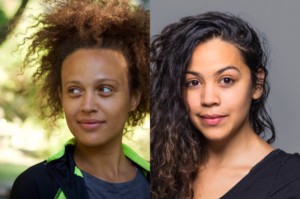
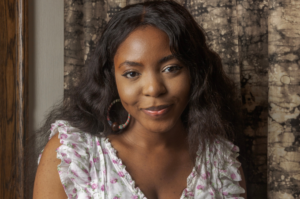
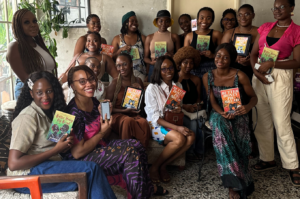
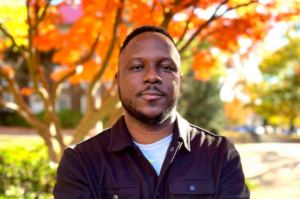
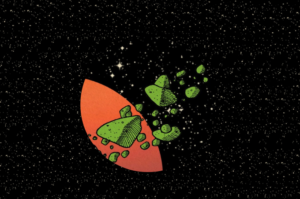

Gersom Safari November 01, 2020 01:48
The interview is of great help to me as a student. There are more issues discussed pertaining to the African literature from its birth, growth and maturity. Early African writers were interested at drawing the attention of the colonial masters so as to address them (target audience). Later on showed up their skills by writing literature that meets the world standard. African literature started as a male art work until when women came and joined through much efforts and have have contributed significantly to the present African literature.. To the media of communication, it used to be languages of our colonial masters which was rated higher than local ones. I've also learnt that there is a need to use the digital platforms for promoting African literature. Local authors should be acknowledged within African setting without seeking approval from outside the continent and that their works be approved by the African education system without consulting the so called the big shots. Let us promote African literature.